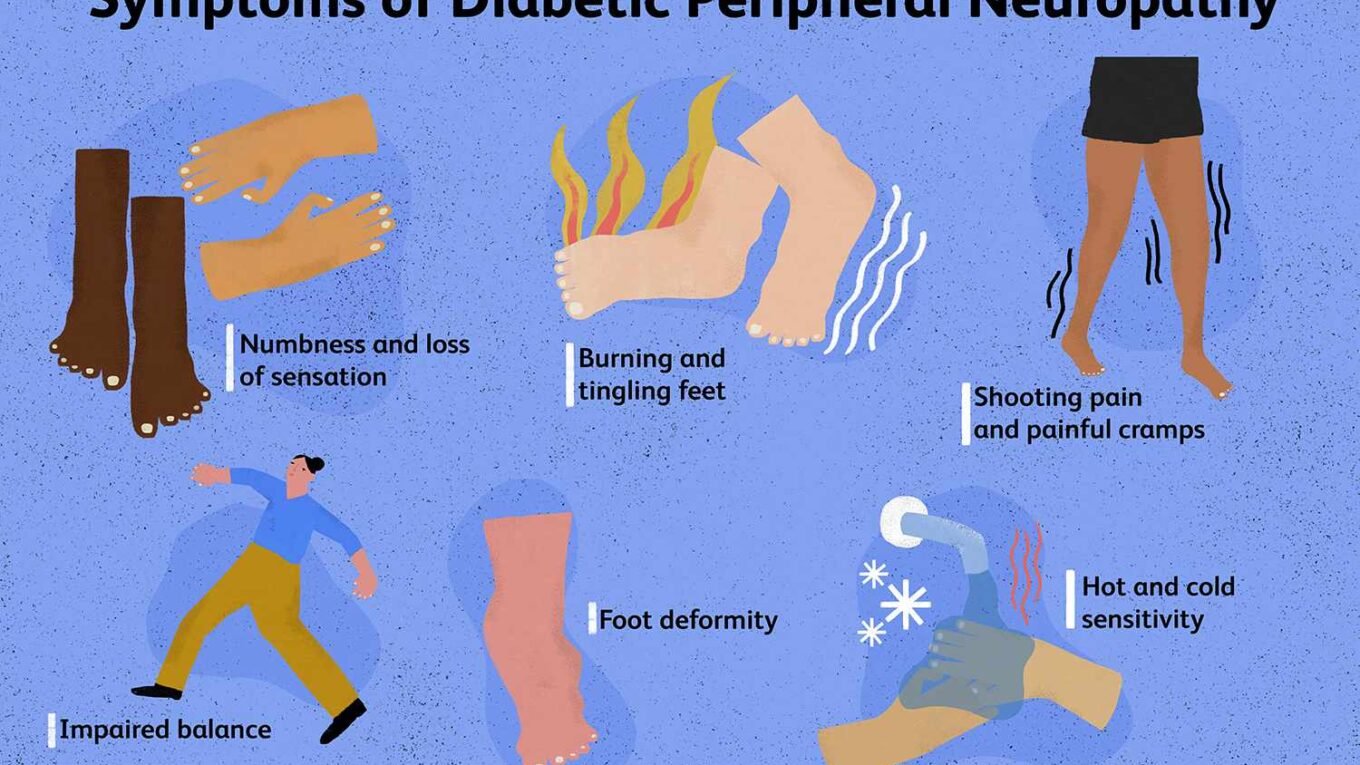What Is Peripheral Neuropathy? Symptoms, Causes, and First Steps to Manage It
It often starts subtly — a tingling in your toes, a slight numbness in your fingertips, maybe a strange burning sensation at night. At first, it’s easy to brush off. But over time, these sensations can intensify, spreading and affecting your balance, coordination, and daily comfort.
This collection of symptoms could be a sign of peripheral neuropathy — a condition involving damage to the nerves outside the brain and spinal cord.
Understanding the Peripheral Nervous System
Your peripheral nervous system (PNS) acts as a communication network between your brain, spinal cord, and the rest of your body. It carries signals that control movement, sensation, and even some automatic functions like digestion and heart rate.
When the nerves in the PNS are damaged, their ability to transmit messages becomes disrupted — leading to discomfort, weakness, or loss of sensation.
Common Symptoms of Peripheral Neuropathy
Peripheral neuropathy can look different from person to person, but the most common symptoms include:
- Tingling or “pins and needles” in hands or feet
- Numbness or reduced sensation in extremities
- Burning or stabbing pain
- Muscle weakness or cramping
- Problems with balance and coordination
- Sensitivity to touch or temperature changes
Some people may experience symptoms only in their toes and fingers, while others notice them spreading upward through the arms and legs.
What Causes Peripheral Neuropathy?
There’s no single cause — in fact, more than 100 conditions can lead to nerve damage. Some of the most common include:
- Diabetes – high blood sugar over time damages nerve fibers and their protective covering.
- Vitamin deficiencies, especially B1, B6, and B12.
- Chronic inflammation – can attack nerve tissue and impair regeneration.
- Infections – such as shingles, Lyme disease, or HIV.
- Injury or trauma – including repetitive strain or accidents.
- Toxin exposure – heavy metals, alcohol abuse, or certain medications.
Why Early Action Matters
One of the challenges with peripheral neuropathy is that nerve damage can worsen over time if the root cause isn’t addressed. The earlier you identify and manage contributing factors, the better your chances of preventing further degeneration — and even supporting nerve repair.
First Steps for Managing Peripheral Neuropathy
- See a healthcare professional for an accurate diagnosis and to rule out serious underlying conditions.
- Control blood sugar levels if you have diabetes or prediabetes.
- Adopt a nerve-friendly diet rich in whole foods, lean proteins, healthy fats, and plenty of B vitamins.
- Stay active with low-impact exercise to boost circulation and stimulate nerve health.
- Address inflammation through diet, lifestyle changes, and targeted nutritional support.
The Role of Nutritional Support
Healthy nerve function relies on a steady supply of specific nutrients — many of which are hard to get in optimal amounts through diet alone, especially if absorption is an issue.
Research has shown that certain compounds, including alpha-lipoic acid, curcumin, Palmitoylethanolamide (PEA), and bioactive B vitamins, can help protect nerve fibers, support repair, and reduce inflammation.
When Supplementation Makes Sense
Standard vitamin capsules and powders often have poor bioavailability — meaning your body absorbs only a fraction of what’s inside.
Some advanced formulas now use nano-sized nutrient delivery systems designed to improve absorption and get active ingredients into the bloodstream more efficiently, where they can support both comfort and nerve regeneration.
Want to Explore Your Options?
If you’ve been living with tingling, numbness, or discomfort — or if you’ve recently been diagnosed with peripheral neuropathy — you don’t have to just “wait and see” as it progresses.
Addressing the underlying causes, improving your nutrition, and supporting your nerves with targeted, high-absorption ingredients can help you take back control of your comfort and mobility.
👉 Discover more about a comprehensive nerve support formula here
Your nerves work hard for you every day — it might be time to give them something back.

